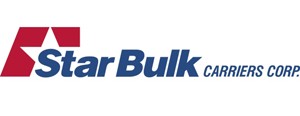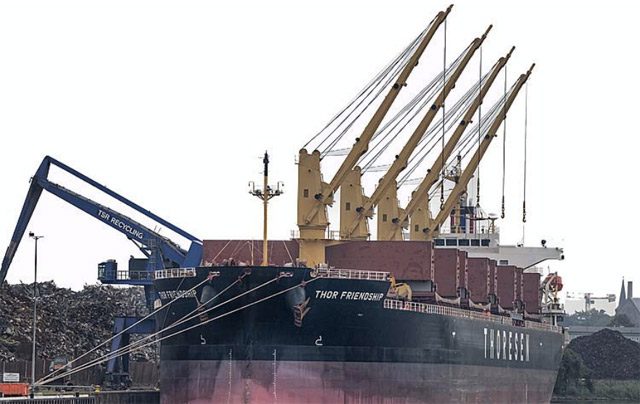 NASDAQ-listed Star Bulk Carriers Corp (SBLK) is looking at a pretty dismal future. Their quarterly numbers they released today weren’t too bad relatively speaking, an adjusted net loss of around $3.8 million, but in reality, their business is completely upside down.
NASDAQ-listed Star Bulk Carriers Corp (SBLK) is looking at a pretty dismal future. Their quarterly numbers they released today weren’t too bad relatively speaking, an adjusted net loss of around $3.8 million, but in reality, their business is completely upside down.
The company performed an impairment test to gauge their projected operating cash flows for each of their vessels versus their carrying value, or book value, on their balance sheet. As result of this analysis, Star Bulk determined that the carrying amount of the total fleet of their eight Supramax vessels and their Capesize vessel, Star Sigma, were not recoverable and their loss amounted to $303.2 million.
Star Bulk also reported that they were not in compliance with several financial and security coverage ratio covenants in their loan agreements.
In their press release today, they note they are currently speaking with their lenders to address their financial issues, however they warn that their “total indebtedness may be reclassified as current and our lenders may accelerate our indebtedness and foreclose their liens on our vessels, which would impair our ability to continue to conduct our business.”
Needless to say, Star Bulk will not be paying a dividend this quarter.
Spyros Capralos, President and CEO of Star Bulk, commented: “Despite the already soft market for the past 4 years, this quarter has been one of the most challenging in recent shipping history. The Baltic Dry Index (BDI) for the quarter ended September 30, 2012 averaged a record low index of 846, which was lower than the previous all-time low recorded in the quarter ended December 31, 2001, which averaged 875. The exceptionally weak freight market environment has affected our revenues due to our increased spot market exposure, especially in the Supramax sector. However, our prudent strategy to hedge our Capesize fleet with first class charterers has reduced the weak market impact.
Our $3.8 million adjusted loss in this quarter includes a loss of revenue of $1.5 million due to the main engine damage of the Star Polaris, which received no hire. The vessel has been repaired and re-entered her charter of $16,500 per day to our first class charterer. In the
meantime, we are pursuing our claim against the shipyard.
Historically freight rates and asset values are closely correlated and, as one would expect, vessel values have dropped significantly during the last several quarters. As a result of these adverse market conditions, as of September 30, 2012, we were not in compliance with some
covenants in our loan agreements. We are currently in advanced discussions with our lenders to clear these issues. Whilst a mutually agreeable solution is being sought, our Board of Directors has decided to suspend the payment of dividend on the Company’s common
stock.
Our medium-term outlook for the dry bulk industry is turning positive as we move past this year’s imbalanced supply growth. While demand for dry bulk commodities from major developing countries continues its growth for the foreseeable future, we expect the market
to start improving due to the reduced orderbook, increased scrapping, slow steaming and the lack of bank financing.”
Editorial Standards · Corrections · About gCaptain

 Join The Club
Join The Club











